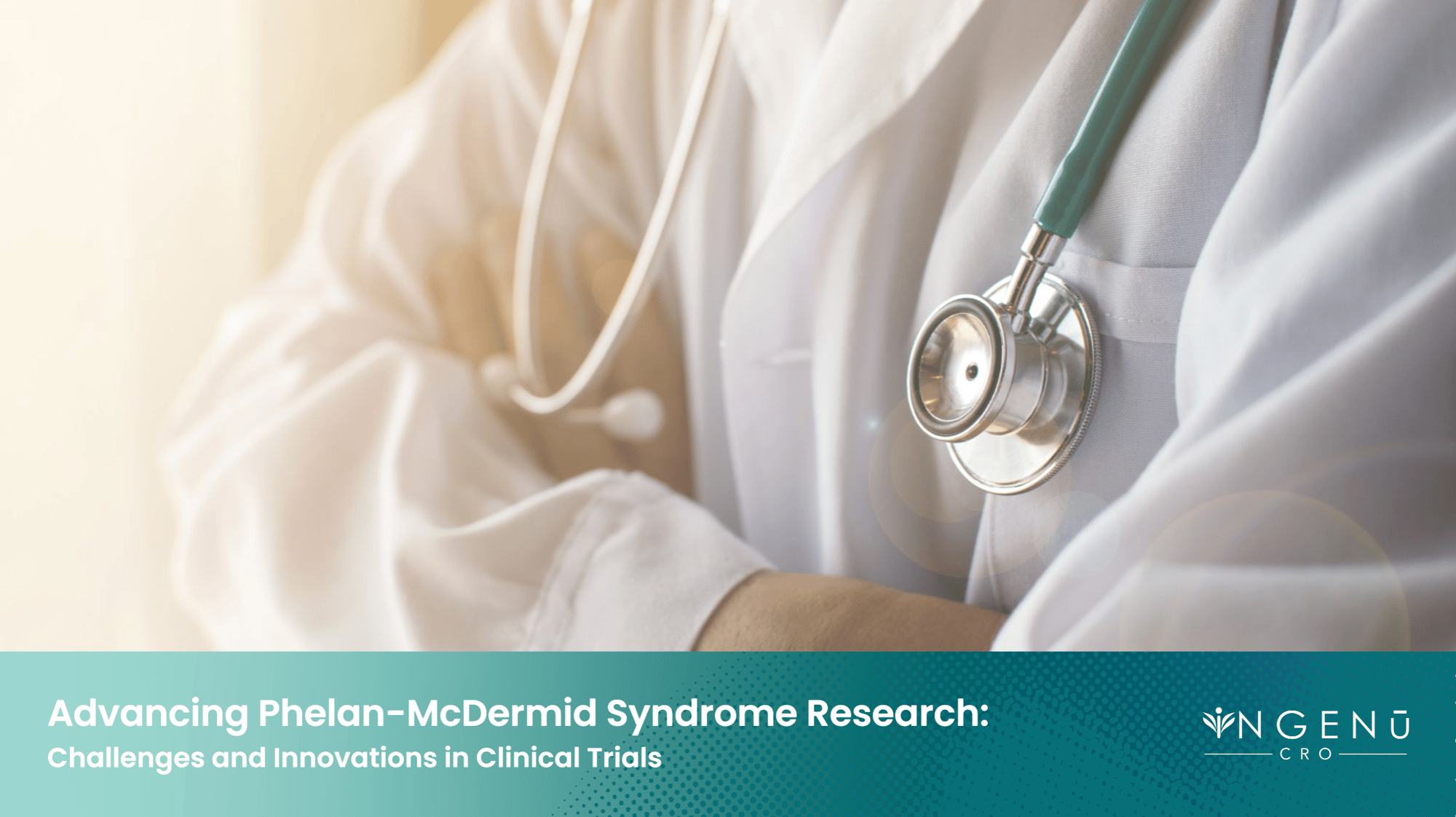Download our whitepaper,
"Advancing Phelan-McDermid Syndrome Research: Challenges and Innovations in Clinical Trials"

What's Inside:
- Key FDA-Approved Pivotal Endpoints for Phelan-McDermid Syndrome Clinical Trials.
- Optimizing Recruitment with Adaptive Trial Designs for Phelan-McDermid Syndrome.
- Comprehensive Analysis of FDA-Approved Phelan-McDermid Syndrome Drugs.
- How Diagnostic Criteria for Phelan-McDermid Syndrome Have Evolved and Impact Research.
- Overcoming Common Pitfalls in Phelan-McDermid Syndrome Clinical Trials.
- And additional insights to drive your trial's success.
Access your complimentary whitepaper today:
Phelan-McDermid Syndrome
Phelan-McDermid Syndrome (PMS), also known as 22q13.3 deletion syndrome, is a rare neurodevelopmental disorder.
Phelan-McDermid Syndrome is primarily caused by deletions on the terminal end of chromosome 22 or mutations in the SHANK3 gene. These genetic changes can occur sporadically or be inherited. The syndrome presents a broad spectrum of symptoms, including global developmental delay, intellectual disability, absent or delayed speech, hypotonia, and various autistic-like behaviors.
Key Characteristics
- Genetics: PMS is linked to the SHANK3 gene, which plays a crucial role in synapse formation and brain function. Deletions or mutations in this gene lead to many of the neurological and developmental symptoms associated with the syndrome.
- Neurological and Developmental Impact: Patients often have developmental delays, intellectual disabilities, and behavioral challenges like autism spectrum disorder (ASD). Seizures and sleep disorders are also common.
iNGENū’s team of researchers and clinicians is dedicated to advancing Phelan-McDermid Syndrome research. Through innovative trial designs and a patient-centered approach, we work to accelerate the development of new treatments that could offer improved options and outcomes for those affected by Phelan-McDermid Syndrome.
60%
of individuals with Phelan-McDermid Syndrome are also diagnosed with autism
85%
of of individuals with the syndrome experience significant speech and language delays
1 in 9
individuals with Phelan-McDermid Syndrome have a heart defect at birth
Our clinical team has over
120
years of combined clinical trial experience